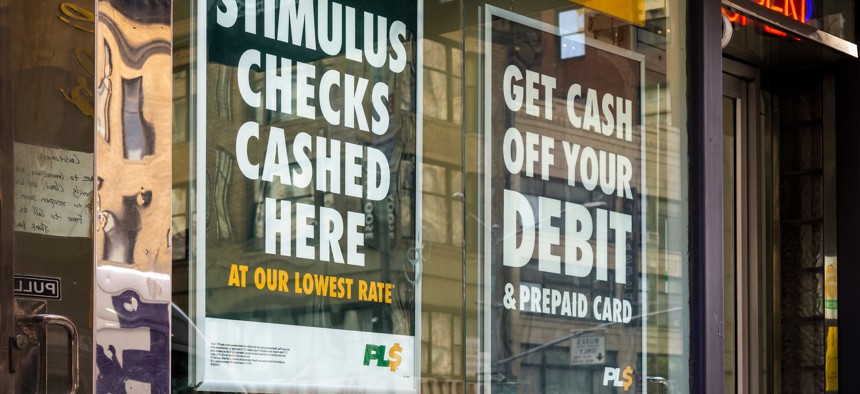Government transfers kept 1M NYC residents out of poverty during pandemic: report

A check cashing business in New York City advertises that they cash stimulus checks in March 2020. rblfmr / Shutterstock
Tax credits, government transfers and other benefits provided through the federal CARES Act – such as direct payments and boosted unemployment benefits – kept 1 million New Yorkers out of poverty in 2020, preliminary data shows.
These government transfers reduced the poverty rates in New York City by 43% last year, according to an annual report on poverty released by the Robin Hood Foundation and researchers from Columbia University. The poverty rate decreased by an even more significant margin in 2020 than it did in 2019 as a result of government transfers.
“Had the policies in response to COVID-19 not been put into effect, we would have seen a more substantial increase in the poverty rate,” reads the “Poverty Tracker” report released yesterday.
The report made the case for certain provisions in the CARES Act to be made permanent after the pandemic’s end, such as the 15 percent increase in Supplemental Nutrition Assistance Program benefits and the expansion of the Child Tax Credit. It also recommended changes to two other federal policies to reduce poverty: eliminating income threshold restrictions related to the Child Tax Credit; and increasing access to housing subsidies.
Most of the report focuses on poverty in 2019 – before the COVID-19 pandemic hit New York City – because of the time it takes to collect and analyze data. It found that one in five adults, as well as one in five children, lived in poverty. In every year from 2016 to 2019, Black and Latino New Yorkers were twice as likely as white New Yorkers to live in poverty.
